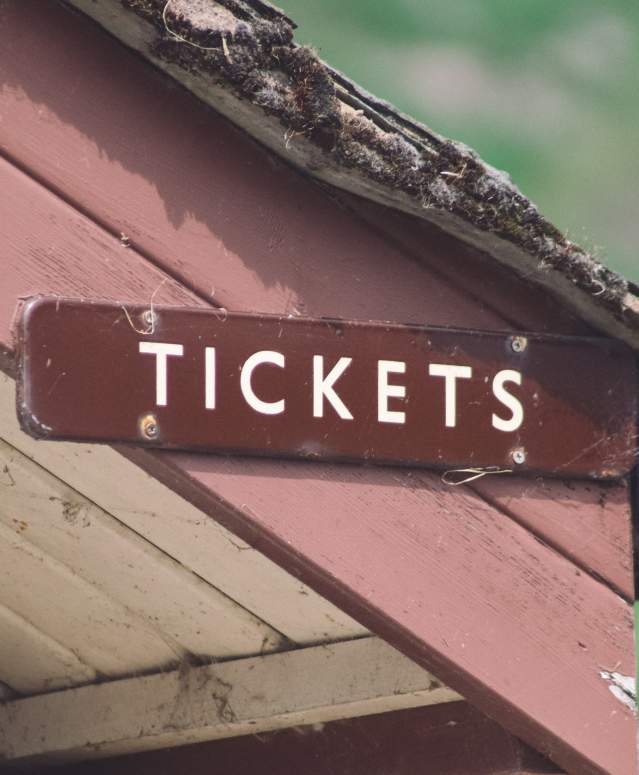TICKETING
Ticketing is an important aspect of your attendees’ experience and is usually the main source of an event’s revenue.
As well as price, the way you make your tickets available and the transparency of any additional fees can affect the reputation and perceived value of your event. Convenience is hugely important to attendees’ overall event experience, while hidden fees can add a sour taste in their mouth before your event has even started. Likewise, your pricing structures must convey a sense of value to your potential customers, otherwise they will not feel incentivised to purchase tickets and attend your event.
Tips
Ticketing service providers
Before signing up with a ticketing service provider, research the options available and determine the best fit for your event ticketing requirements. Important things to consider include:
- Online user experience – the ticket buying process for attendees should be easy and streamlined.
- Set-up process – the ticketing system you choose should make it easy to set up your event ticketing requirements and make any updates if required.
- Customer support – make sure the system you choose provides responsive and knowledgeable customer support if you or any event attendees want to ask questions or discuss any ticketing issues.
- Customisation – do you get custom design options for your ticket sales page? How is this ticketing provider going to support the branding of your event?
- Ticket price options – does the ticketing system accommodate different ticket types or tiered pricing options?
- Seat allocation – if attendees can select their seats at your event, the ticketing service provider will need to offer an interactive seating plan.
- Fee structure – what fees will be added to your ticket prices and are they charged to attendees, you as the organiser, or both?
- Payment – when and how will you be paid for ticket sales? Does the ticketing service provider offer its own secure payment system or is it integrated with an external payment gateway?
- Ticket format – will attendees require a physical printed ticket, mobile ticket or a scannable E-ticket? How will you validate these tickets at the gate?
- Social media integration – does the ticketing service make it easy for attendees to share your event across social media channels? This can help your marketing and drive ticket sales.
- Mobile-friendly – many attendees will want to buy tickets as soon as they hear about your event, often directly from their phones. If they encounter difficulties, they may not follow through.
- Reporting tools – easy to understand and exportable sales breakdowns and activity reports are great tools for understanding how your promotions affect sales.
- Data capture – it can be useful to collect data from your attendees such as demographics (e.g. age and gender) or location. Does the ticketing service provider make it easy to add custom fields on your ticketing page to collect this information?
- Communication – the ability to send ticketing information and updates to attendees via your ticketing provider can streamline communications.
- Refunds and event cancellation – ensure the refund policy is clearly defined and the process can be communicated to attendees at the time they purchase their tickets. If your event is cancelled, will you be able to cover the cost of refunding tickets?
Ticketing fees
Ticketing fee structures can be complicated, so its important to ensure you have a good understanding of what to expect from your ticketing service provider before you proceed.
- “Inside” fees charged by a ticketing service provider should be accounted for in your budget. For example, if selling a $20 ticket costs you $2 in processing fees, you may choose to increase the advertised ticket price to $22 to account for this.
- “Outside” fees such as booking, delivery or payment-processing fees may be applicable so factor in these costs to understand how much attendees will need to pay on top of your ticket price.
Ticket pricing and sales strategies
- Ticket pricing plays an important role in the perceived value of your event. Before you set your ticket prices, undertake some market research and create a ticket sale projection that works within your budget.
- Tiered pricing systems can be a great way to increase your revenue and allow attendees to choose an option that best accommodates their needs. The tiers can be set up in many different ways. For example, ‘earlybird’ tickets can be sold at a discount in return for early ticket sales, while ‘VIP’ tickets might have extra value added to the experience to account for a higher price.
- Record the ticket income calculation in your budget with GST excluded if you are GST registered. For example, a $20 advertised ticket price will be $17.39 if you are required to pay GST from the income. Learn more about GST, Taxes and Levies.
- Tickets must be available for purchase at the same time you launch the promotion of your event as the strongest period of engagement is typically when people first hear about the event.
- Social media is a powerful marketing tool for increasing ticket sales. Incentivise the sharing of your event’s ticketing page to take advantage of networks outside your own reach. For example, promote a limited offer to users who ‘like’ and ‘share’ your event.
- Creating perceived scarcity can encourage attendees to take the plunge and buy their tickets now. For example, a social media post that points out that there are only 20 VIP tickets left could have them sold in a matter of minutes.
- Competitions can add to the ‘buzz’ around your event and drive ticket sales – remember to account for the prizes in your budget.
Ticket sale projections
Creating a ticket sale projection (yield) based on 100%, 75% and 50% scenarios is a useful exercise. This will help determine the “contingency” needed in your budget to account for any ticket sale deficiencies.
- If ticket sales are tracking below 50%, this could be an indication to reconsider the viability of the event.
- It is a good idea to keep at least 5% of your budget aside for contingencies such as poor ticket sales or budget blow-outs.
Complimentary tickets
- Remember to account for complimentary ticket costs—these “freebies” not only use up valuable seats that you could sell, but they may also incur ticketing fees.
- If any sponsorship agreements include complimentary tickets, ensure you have budgeted revenue to cover the cost of these tickets.
Useful Links:
Some Ticketing Service Provider options:
- Eventbrite | Event ticketing and marketing platform
- Eventfinda | New Zealand's largest independent ticketing provider
- iTicket | Promote or sell tickets
- Ticketspace | Event ticketing made easy
- Ticketbooth | Online ticket sales, your way
- Flicket | Complete. Integrated. Ticketing
- Humanitix | Hassle-free event ticketing that puts humanity first
Have you Considered?
- Seating allocations – can attendees choose their seats or is it ‘General Admission’?
- Do your event staff, security and volunteers understand the ticketing structure and process enough to explain it to attendees if required?
- What is your policy on ticket reselling? Does your ticket service provider support this option?

